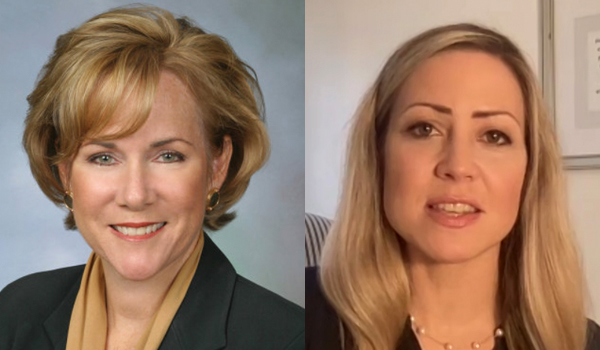 On March 25, 2021, Catholic Law’s Compliance, Investigations, & Corporate Responsibility (CICR) Program continued with its webinar series dedicated to discussions surrounding business and human rights issues. The event, “Business Accountability for Human Rights: What Companies Are Doing to Address Human Rights Violations,” shifted the focus of the previous program discussion – social responsibility and small businesses — to the response of larger companies, particularly global corporations, to human rights issues.
On March 25, 2021, Catholic Law’s Compliance, Investigations, & Corporate Responsibility (CICR) Program continued with its webinar series dedicated to discussions surrounding business and human rights issues. The event, “Business Accountability for Human Rights: What Companies Are Doing to Address Human Rights Violations,” shifted the focus of the previous program discussion – social responsibility and small businesses — to the response of larger companies, particularly global corporations, to human rights issues.
Dean Stephen Payne welcomed the group with a few opening remarks, noting that, “One of the most important parts of our law school’s mission is finding ways to address issues that profoundly impact human lives, both here in the United States and around the world. These online discussions are part of this effort.” Professor Sarah Duggin, Director of the CICR program, then moderated an insightful discussion with guest speakers—Tara K. Giunta '86, Partner and Vice-Chair, Investigations and White Collar Defense Practice at Paul Hastings LLP, and Heather C. Fischer, Special Liaison for Global Strategy, Anti-Human Trafficking, and Exploitation at The Knoble.
The program began with opening remarks from each of the panelists. Both Giunta and Fischer provided a brief overview of how they became engaged in advising companies and businesses on human rights issues. Giunta, who began her journey at Catholic Law, pointed to her early legal career working on telecommunications in foreign markets as her entry point to corporate governance. Working with corporations on ethics issues, the ethics of entering a market space, and designing due diligence within that process all influenced her perceptions of corporate compliance. Through the years, Giunta has witnessed the rise of issues pertaining to Environmental, Social, and Governance (ESG) sustainability standards beginning with board diversity issues and expanding into broader areas, including a broad range of human rights issues. Fischer entered into the business and human rights field by way of a less traditional route. After first learning about issues of child sex trafficking, Fischer was unsure how she could make an impact. It wasn’t until years later that she realized how she could use her work to get involved in human rights issues. Since then, her career has evolved from field volunteer to the work she does at The Knoble.
Duggin then posed a series of questions to the panelists delving deeper into specific human rights challenges facing the corporate world today. Giunta and Fischer discussed the opacity and multiple layers of global supply chains and the resulting difficulty of addressing human rights issues. They recognized, however, that the United Nations’ Guiding Principles, European Union directives, domestic laws, and other global calls to action are beginning to create meaningful change, and major companies are beginning to address supply chain issues. Fischer offered a few examples, and both speakers highlighted the continued growth in awareness of these issues as well as the impact consumers and other stakeholders can have in effecting change.
In the final segment of the program, the panelists answered questions from the audience on a variety of issues ranging from the impact of laws such as the California Transparency in Supply Chains Act to the effects of the COVID-19 pandemic on vulnerable workers. In their final comments, Giunta and Fischer looked to the future and what's next on the compliance horizon. Both are encouraged by what they see—real movement and momentum in working to address issues coupled with a younger generation that is eager to have these conversations and make a difference.
The CICR Program looks forward to its next webinar in June 2021 and exploring what some faith-based organizations are doing with respect to business and human rights.
These online discussions will culminate in a conference here at the Law School on October 28 and 29, 2021. The conference will be the first in a series of conferences bringing together scholars, business people, lawyers, and religious leaders to focus on addressing human rights issues in global supply chains, particularly labor exploitation in all of its various forms.
Below is a portion of the recorded presentation. Unfortunately, due to a technical error during recording, only the last thirty minutes was retained.
